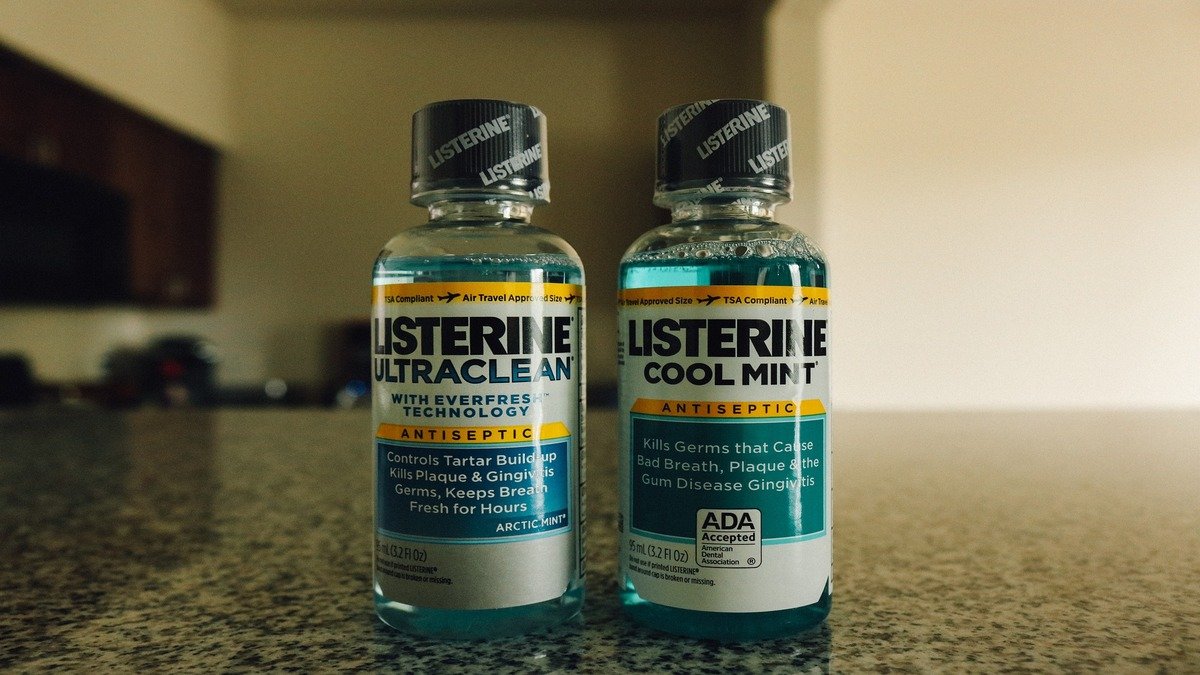Can You Recycle Plastic Mouthwash Bottles?

When it comes to oral care, there’s nothing quite like mouthwash. This single product can reduce your plaque buildup, help you with bad breath, and even fight gingivitis. It’s therefore not surprising that mouthwash bottles have become somewhat of a bathroom cabinet staple.
And if you’re not careful, you can end up with several empty mouthwash bottles in your house. But can you recycle these bottles? Or do you have to throw them in the trash? That’s what we’ll be discussing today.
Are plastic mouthwash bottles recyclable?
Yes, plastic mouthwash bottles are recyclable. This is because they are usually made of a recyclable type of plastic; #1 plastic. Scientifically, this is known as Polyethylene Terephthalate (PETE/PET)
How do you recycle Listerine and other mouthwash bottles?
You can recycle your mouthwash bottles by throwing them into your plastic recycling bin. Just ensure that you rinse the bottle and remove its cap before recycling it.
Ultimately, recycling is the best way to get rid of any mouthwash bottle. After all, it reduces plastic waste.
Can you reuse Listerine bottles?
Yes, you can reuse Listerine and other mouthwash bottles. Some ways you can do this include:
- Using it as a scoop for your sandbox: you can create a scoop by cutting off the bottle’s top
- Using it to create a pen/phone holder: you can do this by cutting off the bottle’s top and then decorating its outside as you wish
- Using it as a planter: you can do this by cutting off its top, decorating it, and then planting some seeds inside it
What do you do with expired Listerine?
Once a mouthwash has expired, you need to throw it out, even if it doesn’t seem to have changed. Remember, using expired Listerine doesn’t help you in any way. Generally, you shouldn’t even use mouthwash that has been around for over 2 years from its manufacturing date.
This is because mouthwash contains alcohol and other chemicals that start to deteriorate after 2 years from the manufacturing date. This waters down the mouthwash and puts it at risk for bacterial growth.
Is mouthwash a hazardous waste?
According to the OSHA Hazard Communication Standard (29 CFR 1910.1200), mouthwash is considered hazardous waste. After all, it is flammable and can be toxic to certain body organs.
Can you flush mouthwash down the toilet?
Yes, it’s safe to flush mouthwash down the toilet. It can even help keep your toilet clean. You can use this to clean your toilet by pouring it around its bowl, leaving it to sit for around an hour, then proceeding to scrub and flush your toilet. You can even pour a bit of mouthwash in your toilet water to keep the bathroom fresh.
Interestingly, this isn’t the only unorthodox way you can use mouthwash in your home. You can also use it to:
- Clean your toothbrush
If you’ve left your toothbrush sitting idly in a cup for a long time, it can easily become riddled with bacteria. However, you can easily solve this problem using mouthwash.
All you have to do is leave your toothbrush to soak in a cup with mouthwash for around 20 minutes.
Afterward, you can just rinse it and brush your teeth as usual.
- Sanitize your hands
As long as your mouthwash contains alcohol and doesn’t have sugar, you can use it as a hand sanitizer. You can just put it in a small spray bottle and use it on the go.
- Freshen laundry
Adding a cup of mouthwash to your washing water can help you get rid of bacteria and strong odors. This is particularly helpful when washing gym clothes or any other clothes with heavy smells.
- Keep flowers fresh
Adding a bit of mouthwash to your flowers’ water will help them last longer. To do this, mix a gallon of water with two tablespoons of mouthwash and use the solution in your flower vase.
The mouthwash will kill the bacteria in the vase, slowing down the flowers’ decay.
- Treat dandruff and nail fungus
Mouthwash can help you deal with dandruff and nail fungus. To treat the former, mix half a cup of water and half a cup of mouthwash to create a solution. Use this solution to rinse your hair every time you shampoo it.
To deal with toenail fungus, use a cotton ball to apply mouthwash on the affected nails or soak the affected foot in mouthwash.
Recycle and reuse!
When it comes to mouthwash bottles, always seek to reuse or recycle them when you don’t need them anymore. This will benefit both you and the environment.
